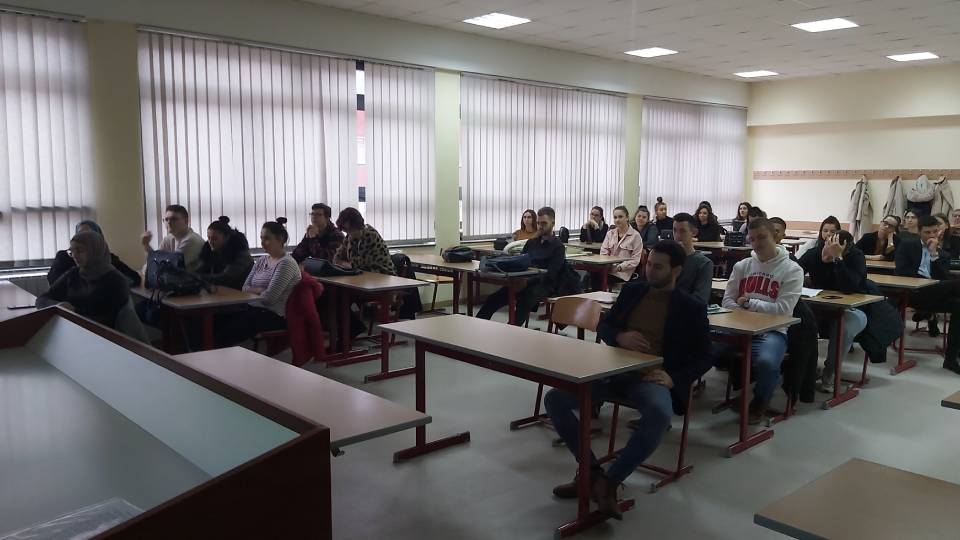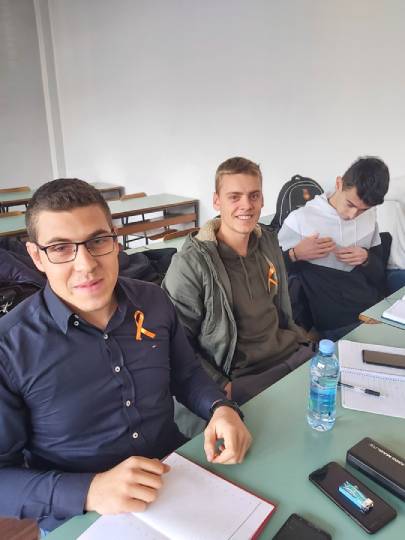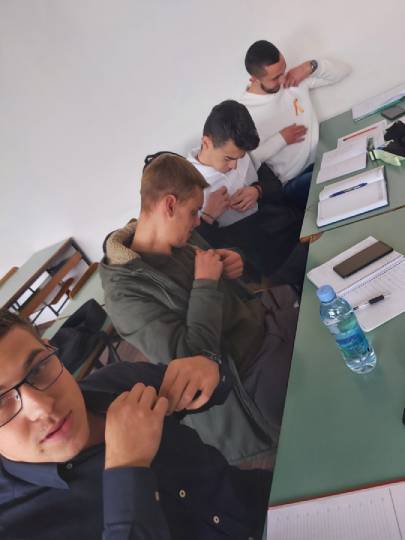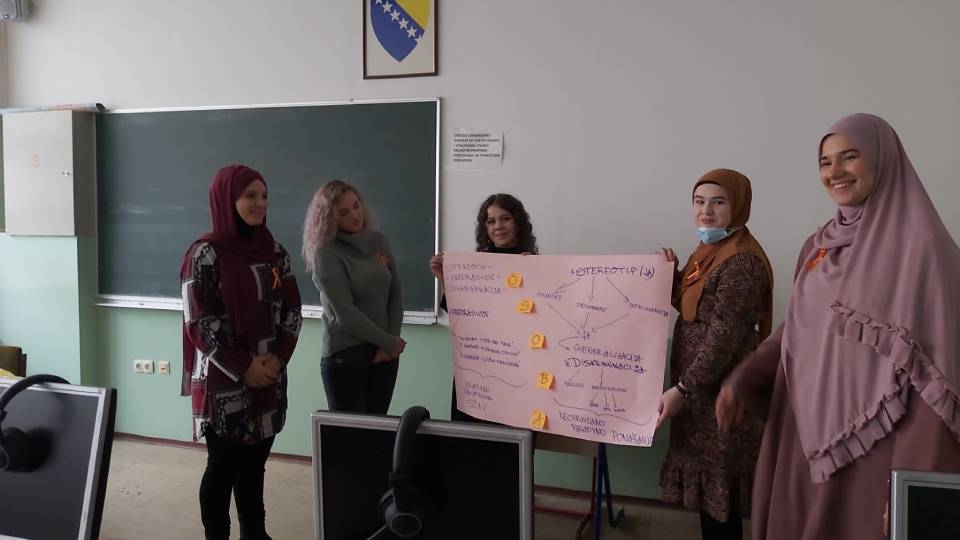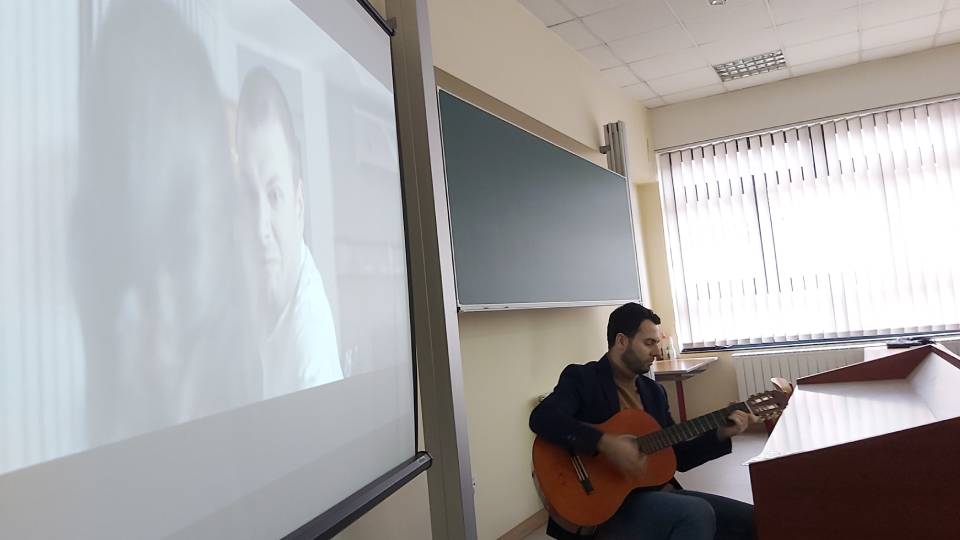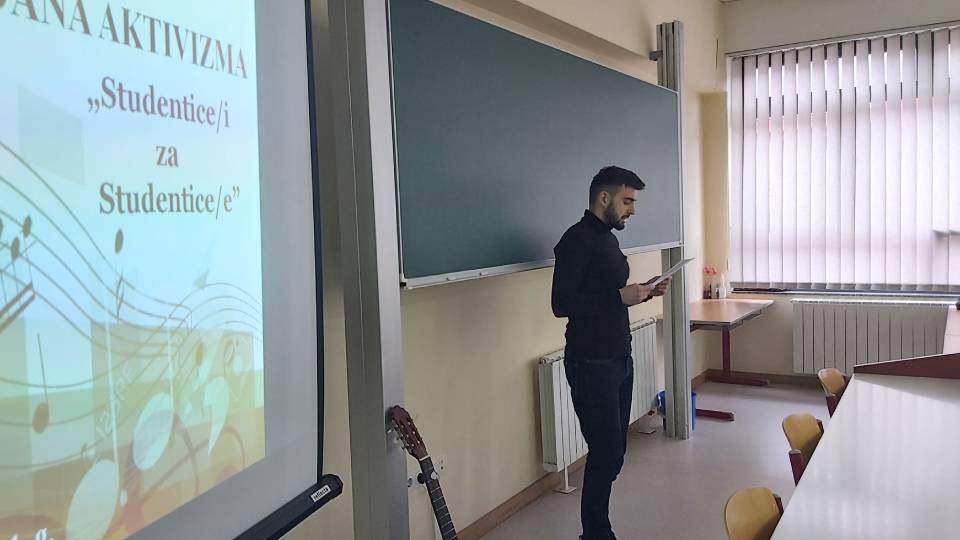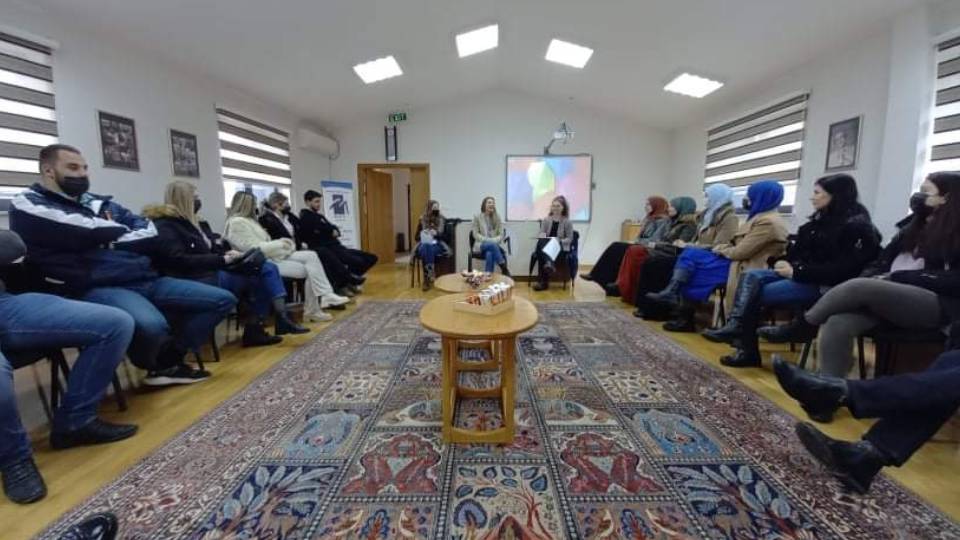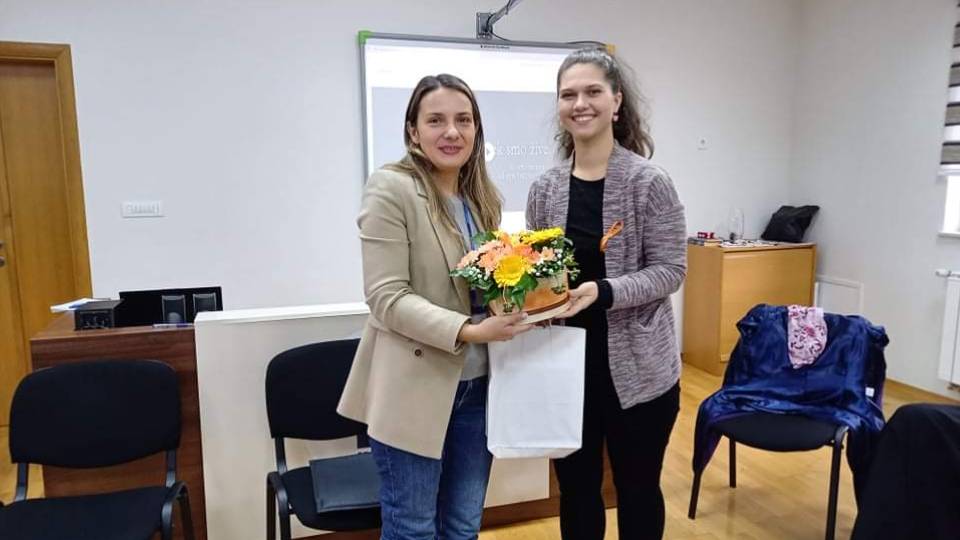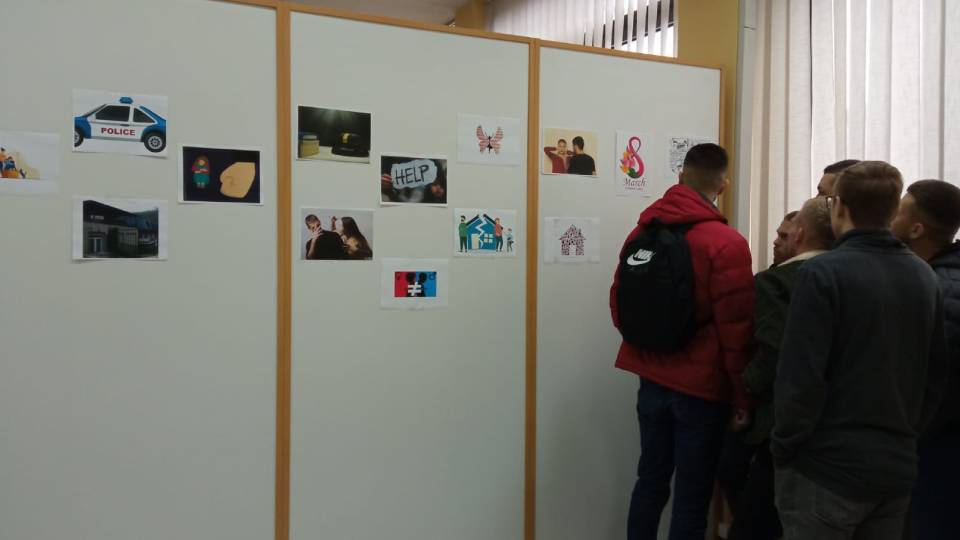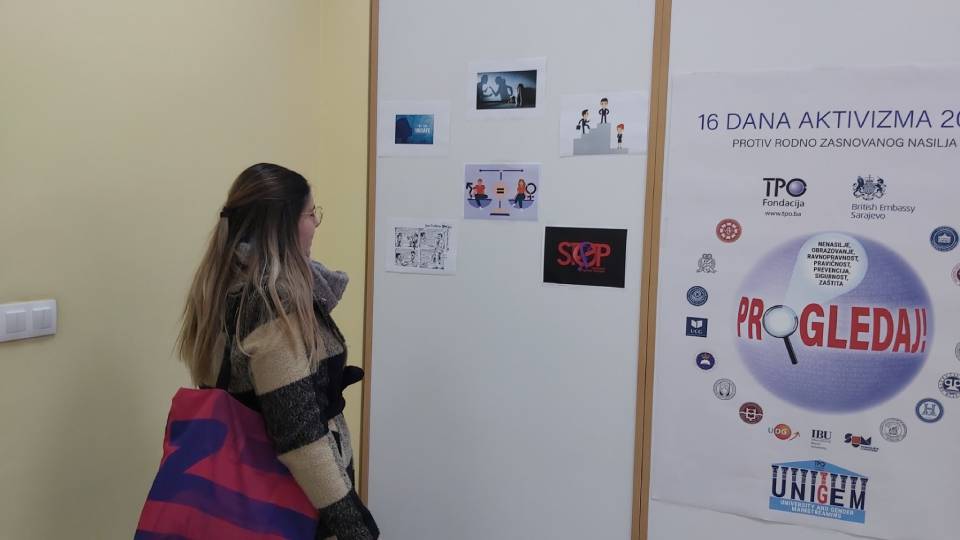Introduction of gender mainstreaming in higher education – UNIGEM is a project in which students from the University of Zenica also contributed. The main goal of the activity was to stimulate interest and talk about the many problems that exist in the wider community, which contribute to the development of gender-based violence. On the occasion of the campaign “16 days of activism”, students realized a number of activities:
The activity “Students for Students” included, through various works of world and domestic poetry and prose, famous poems, confessions of victims of violence and discussion, to point out the problems of gender inequality, domestic violence, discrimination. Each of the presented points proclaimed the problem of gender inequality and presented the position and emotions of women in a special literary way. A special domain of this activity is the discussion in which the participants said that this is the first time they are looking at literary works through the prism of gender inequality and that most of them have had direct or indirect contact with gender-based violence.
Students who exhibited their works are: Semra Bukva (The world still belongs to men-authors of Šola Volpi), Ahmed Smolo (Superwoman for sale-authors Lejla Farđami), Ena Sikira (Devastating Silence-authors of Šola Volpi), Almin Music Excerpt from the publication Thoughts What You Listen to (by Azra Hajdarević), Jasmina Horić (Sveti Lazar-Silvija Plat), Lejla Komarac (On the short story by Duga by Dinko Šimunović), Ilhan Osmanović (Confession of a Victim of Domestic Violence), Vehid Veispahić (song Practical Woman of the Group
The second activity that the students realized was an educational exhibition in the Library and Reading Room of the Faculty of Law, University of Zenica. Through 22 non-artistic paintings, show the “vicious circle” of prejudice, discrimination, gender-based violence and the process of resolving it. The pictures represented: a man’s hand and a woman’s hand, a sign of equality and inequality between the sexes, a child listening to domestic violence, a white ribbon on an orange background, a police car, a safe house, March 8, a woman with injuries, a woman shouting at a man , safe house and other suitable pictures. As students of the Faculty of Economics, it was especially interesting to hear that one of the essential reasons why women do not decide to report gender-based domestic violence is the economic / financial dependence of women on the perpetrator. The realized exhibition still stands on the place of the exhibition and in that way can continuously remind us of the importance of everyday conversation and struggle in this field.
The third activity called “Ribbon for raising awareness” was realized at the Faculty of Metallurgy and Technology, the Faculty of Medicine, the Faculty of Polytechnics and the Faculty of Mechanical Engineering. The ribbons were distributed in front of the faculty units while the students were on breaks, waiting for exams, lectures, etc. A total of 200 ribbons were divided. The orange ribbons were a symbol of student activities at the University of Zenica in the 16 Days of Activism campaign. The reactions were positive and the students asked questions about why it is orange, whether it is a campaign that is only in BiH or around the world. Unfortunately, there were also those who heard for the first time about the process of combating gender-based violence, and it is evident how new vistas were opened to them with one tape and how they were extremely interested in this topic.
The penultimate activity was a visit to the safe house of the Association “Medica” Zenica. The safe house of the Association “Medica” Zenica is one of the eight safe houses in BiH and it is extremely important to inform students about their existence. Several students did not even know that the safe house existed and where it was located, which means that this activity was extremely important because it introduced students directly to the existence and work of the safe house. The hosts were especially happy due to the fact that students from different faculty units came to visit, and everyone was surprised by the amount of questions asked. At the end of the visit, the participants experienced a special catharsis by listening to and watching a life story of a person who suffered gender-based violence in the armed conflict in BiH, but unfortunately also in peace.
An absolutely positive moment was on the way back from the Safe House when the students talked so quietly and slowly to each other about what a woman can endure and endure without telling anyone about it. It was a moment of true catharsis, compassion, courage and boldness to speak, discuss, propagate and fight this topic. Also, the positive effect is that the students immediately asked for the opportunity to volunteer in some organizations that deal with the protection of women’s rights, which we consider the best product of these activities.
Last activity called Why are we doing this? It included a workshop on the problems of stereotypes, prejudice and discrimination. The students gave examples of how they were raised in a patriarchal society and that girls had to dress in pink and lilac clothes (so-called women’s colors), that they had to play with dolls and judges, and that boys were asked to play. cars, rifles, etc. which obviously reflects the intention that boys must be brave and combative, and girls gentle and calm, and that this is reflected in adulthood in a way that men do not cry and women cry for every little thing. It is especially important to emphasize that a safe environment developed at this workshop where students talked about problems in love relationships, manipulations they experienced and experienced, and that they thought it was normal, but now they actually see it as a form of violence. Special emphasis was placed on the concept of victim, so it was discussed how the victim should look in the eyes of society, because our society considers a victim only a person who has obvious bruises, if he cries, if he has a broken limb, and in fact the victim does not have to have any of the mentioned characteristics and may be a victim of gender-based violence.

